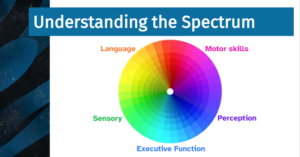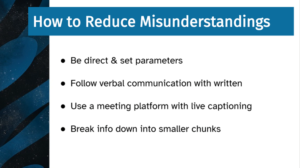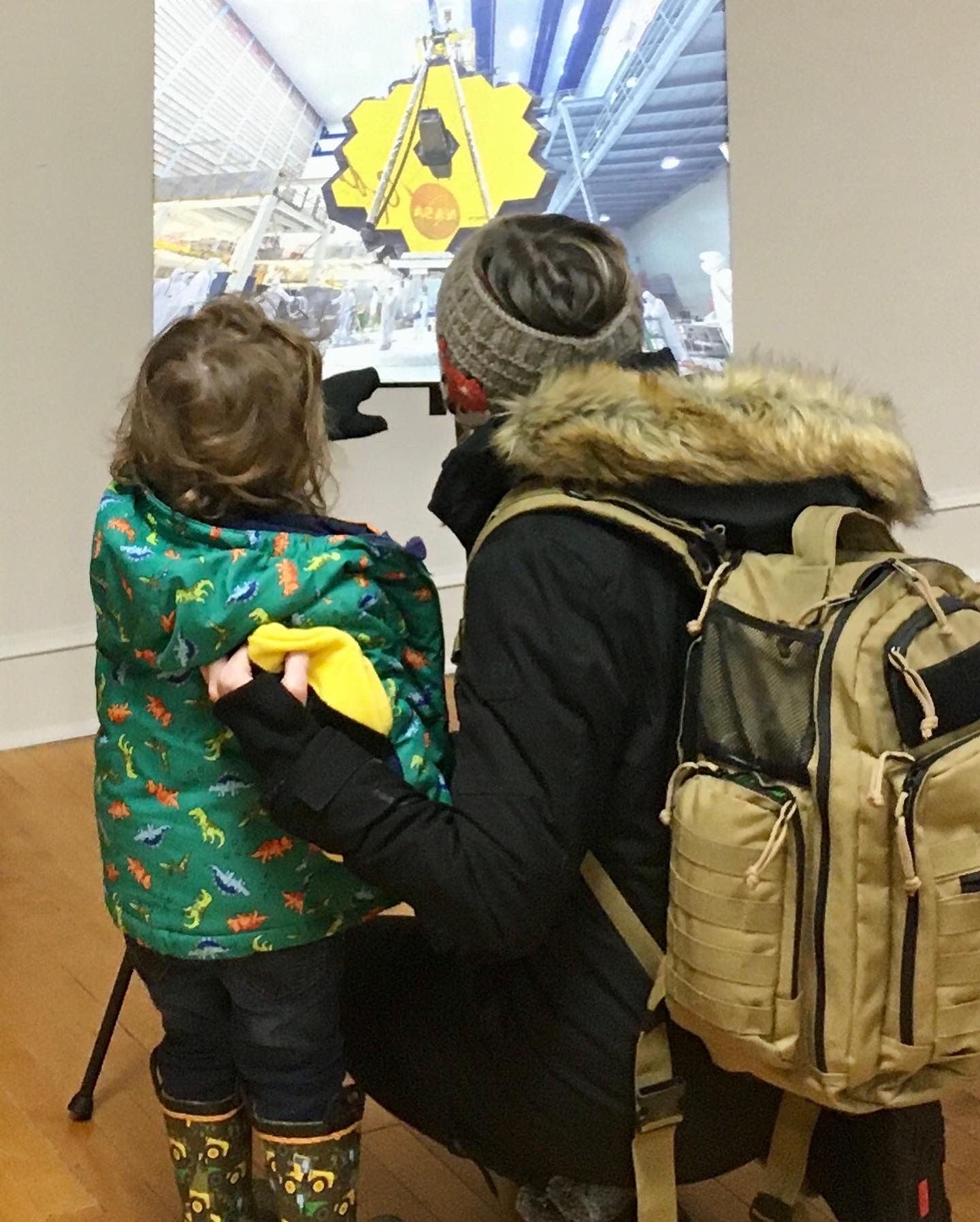By Jessica Santascoy
Library staff are committed to fostering diversity, equity, inclusion and accessibility in their communities (Fournier and Ostman). It’s often the case that people find a welcoming and safe environment at a library – a sense of belonging.
Understanding neurodiversity helps increase inclusion. “Neurodiversity describes the idea that people experience and interact with the world around them in different ways; there is no one “right” way of thinking, learning, and behaving, and differences are not viewed as deficits (Baumer and Freuh).” In the image below, What is Neurodiversity?, there are some examples of neurodivergence, including some that may surprise you, such as PTSD.

Image 1, via Neurodiversity Hub
NASA@ My Library staff, along with a consultant from Happily Autistic, gave a webinar for NASA Science Mission Directorate groups as part of the Diversability series, and we thought you’d find the information useful. Below, we share three topics that we discussed.
Introduction to understanding the spectrum
Take a look at image 2, below. Most visuals that describe the spectrum are linear, and represent autism as mild to severe or low to high functioning. This graphic represents the spectrum in a nonlinear way. It shows how someone on the spectrum may have different traits than someone else on the spectrum. This is an important first step to recognizing that there is no “typical” form of neurodiversity.

Image 2, adapted via Rebecca Burgess’ Understanding the Spectrum – A Comic Strip Explanation
Tips to reduce misunderstanding
In image 3, we give several tips for reducing misunderstanding. For example, breaking information down into smaller chunks helps people think clearly and reduces overwhelm. Breaking information down could be as simple as using bulleted lists or checklists.
Your team could be more productive and happier, with these small changes that make a big impact. Consider integrating approaches that tend to be beneficial for those who identify as neurodivergent as practices for your whole team – everyone enjoys increased clarity!

Image 3
Disclosing neurodivergence
What do you say when someone discloses that they’re neurodivergent?
You could say,
“Thank you for telling me.” That’s always a safe bet.
“Thank you for trusting me with this” is another option.
If you have a close relationship with the person you could add:
“I’m always here for you if you want to talk.”
Always start with “Thank you for telling me.” Because the person telling you is taking a risk when coming forward.
Here are some things not to say:
- I’m sorry to hear that.
- You don’t look ______.
- I never would have known / you hide it really well.
- No wonder you’re so good at math / why aren’t you better at math.
- I have a _____ who’s ______.
- Anything about Temple Grandin / Sheldon Cooper / etc.
- Anything about Autism Speaks
- We’re all a little autistic
Do you have ideas on increasing a sense of belonging for patrons or for your team? We’d love to hear them – post in the comments or contact us.
We are unable to share the recording of this webinar due to privacy concerns, but we’re happy to schedule free webinars through state libraries or other large library consortium to present this resource live and answer questions. NASA@ My Library is proudly led by #actuallyautistic PI Anne Holland, and run by a group of neurodiverse and neurotypical staff. Anne is always happy to answer questions and may be reached at aholland@spacescience.org
Resource List
Provided by Happily Autistic
Articles
Diagnosing Depression in People with Autism: A Guest Blog Post from SPARK – Part I by Marina Sarris via the Anxiety & Depression Association of America (ADAA)
The Consequences of Compensation in Autism by Tara Halle via Neurology Advisor
Half of Autistic Adults Feel A Low Sense of Well Being by Emily Willingham via Forbes
Most college grads with autism can’t find jobs. This group is fixing that. By Nicole Lyn Pesce via MarketWatch Moneyish
Neurodiversity as a Competitive Advantage by Robert D. Austin and Gary P. Pisano via Harvard Business Review Magazine (May-June 2017)
Double empathy, explained by Rachel Zamzow via Spectrum News
Websites
The Autistic Self Advocacy Network (ASAN)
Autistic Women & Nonbinary Network (AWN)
Citations
What is neurodiversity? By Nicole Baumer, MD, MEd and Julia Freuh, MD via Mind & Mood Harvard Health Publishing at Harvard Medical School. November 23, 2021.
Ask, Listen, Empower: Grounding Your Library Work in Community Engagement. Fournier, Mary Davis and Sarah Ostman, eds. ALA Editions, Chicago, 2021.




This is a great resource Jessica. These are issues that are on the rise unfortunately. I have personally seen an increase in the numbers of individuals attending our libraries programs at almost every age group. The resources and information you have provided here will be helpful to all our librarians and aids working on our in-house programming. Thank you!